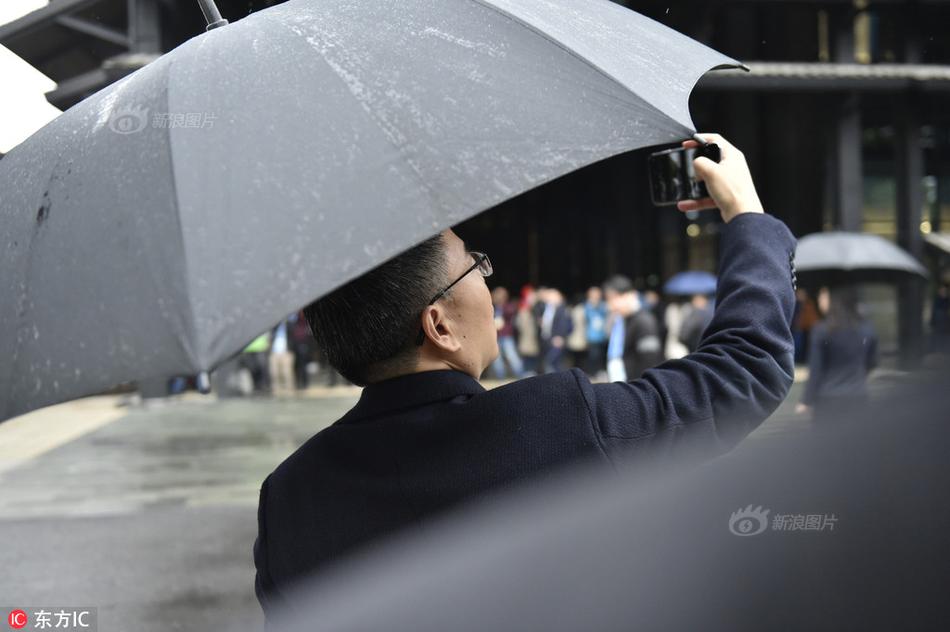Last week saw another win for tech companies doing battle against the United States government.
The watch Lady Chatterley's Daughter (2011)Department of Justice issued new guidelines last week that now require government officials to make specific requests whenever they want to keep an investigation private. Under the new guidelines, officials also won't be allowed to ask for more than a 12-month delay in notifying customers, except in "exceptional circumstances."
That said, DOJ officials seeking customer data will still be able to hide their requests from specific customers if they believe those customers might delete data once they know the feds are onto them, or if the customer might bolt to avoid legal action.
SEE ALSO: Tech Companies Reveal National Security Data RequestsStill, the decision is something of a victory for tech companies and customers interested in transparency: Tech companies that store customer data have long been legally told to stay silent in many cases where federal law enforcement request that information.
The win comes on the backs of Microsoft. The company sued the DOJ last year, arguing that government searches of data violated customers' Fourth Amendment rights, which protect against unreasonable search and seizure. Microsoft's lawyers also argued their own First Amendment rights were violated by the gag orders that prevented them from notifying customers that government officials were looking through their data.
The government issued 2,576 "legal demands" to Microsoft that "included an obligation of secrecy" over a period of 18 months, according to a company statement put out by Microsoft President and Chief Legal Officer Brad Smith. Of those demands, 68 percent "appeared to be indefinite demands for secrecy."
"In short," Smith wrote, "we were prevented from ever telling a large number of customers that the government had sought to access their data."
The company is now "taking steps" to halt its lawsuit because of the new DOJ guidelines, but Smith emphasized the need for legislation preventing long-term gag orders, rather than relying on DOJ guidelines. He pushed Congress to pass the ECPA Modernization Act of 2017, which would prevent officials from sticking tech companies with anything longer than a 90-day gag order unless the government asks for a renewal.
The tussle between Microsoft and the DOJ is just the latest in an ongoing series of tech companies battling the government over issues of privacy.
The DOJ recently had to significantly alter a broad warrant that sought data from 1.3 million IP addresses of visitors to DisruptJ20.org, an organizing point for people who protested the inauguration of President Donald Trump.
Perhaps more famously (or infamously), the FBI and Apple had a public spat over whether Apple should be compelled to provide law enforcement with access to the iPhone of a perpetrator behind a December 2015 shooting spree in San Bernardino, California. Apple argued that to do so would undermine the privacy of all its customers.
Topics Apple Microsoft
(Editor: {typename type="name"/})
 11 Tech Products That Were Supposed to Fail... But Didn't
11 Tech Products That Were Supposed to Fail... But Didn't
 'Inside Out 2' scores biggest box office opening day of 2024
'Inside Out 2' scores biggest box office opening day of 2024
 The 5 most overrated tech products of 2024 (so far)
The 5 most overrated tech products of 2024 (so far)
 NASA released wild footage of its Artemis moon megarocket flying to space
NASA released wild footage of its Artemis moon megarocket flying to space
 Meta says some AGI systems are too risky to release
Meta says some AGI systems are too risky to release
Meta says some AGI systems are too risky to release
 Since AI came into our world, creators have put a lead foot down on the gas. However, according to a
...[Details]
Since AI came into our world, creators have put a lead foot down on the gas. However, according to a
...[Details]
Geely, Volvo joint brand launches first all
 Geely and Volvo’s joint Lynk & Co brand on Sept. 5 launched its first all-electric model f
...[Details]
Geely and Volvo’s joint Lynk & Co brand on Sept. 5 launched its first all-electric model f
...[Details]
iOS 18: 4 'Apple Intelligence' features you won't see until 2025
 Remember all that fancy AI stuff apple announced at WWDC recently? You may have to wait longer than
...[Details]
Remember all that fancy AI stuff apple announced at WWDC recently? You may have to wait longer than
...[Details]
BYD touts progress in automated driving with refreshed Han sedan · TechNode
 BYD on Monday introduced a redesigned version of its popular sedan the Han, touting the leading perf
...[Details]
BYD on Monday introduced a redesigned version of its popular sedan the Han, touting the leading perf
...[Details]
Best AirPods deal: Apple AirPods 4 for $99.99 at Amazon
 SAVE $30: As of Feb. 3, Apple AirPods 4 are on sale for $99.99 at Amazon, down from their usual pric
...[Details]
SAVE $30: As of Feb. 3, Apple AirPods 4 are on sale for $99.99 at Amazon, down from their usual pric
...[Details]
How to watch 'Kung Fu Panda 4' online for free: Peacock streaming deals
 The best streaming deals to watch 'Kung Fu Panda': BEST FOR MOST PEOPLE
...[Details]
The best streaming deals to watch 'Kung Fu Panda': BEST FOR MOST PEOPLE
...[Details]
Webb telescope makes unprecedented exoplanet discovery in distant space
 The powerful Webb telescope doesn't need to take pretty pictures to revolutionize our grasp of the c
...[Details]
The powerful Webb telescope doesn't need to take pretty pictures to revolutionize our grasp of the c
...[Details]
Tesla China sales return to growth in August despite competition · TechNode
 Tesla China handed over 86,697 Shanghai-made vehicles to customers in August, representing a 17% gro
...[Details]
Tesla China handed over 86,697 Shanghai-made vehicles to customers in August, representing a 17% gro
...[Details]
Houston Rockets vs. Dallas Mavericks 2025 livestream: Watch NBA online
 TL;DR:Live stream Houston Rockets vs. Dallas Mavericks in the NBA with FuboTV, Sling TV, or YouTube
...[Details]
TL;DR:Live stream Houston Rockets vs. Dallas Mavericks in the NBA with FuboTV, Sling TV, or YouTube
...[Details]
iOS 18: 4 'Apple Intelligence' features you won't see until 2025
 Remember all that fancy AI stuff apple announced at WWDC recently? You may have to wait longer than
...[Details]
Remember all that fancy AI stuff apple announced at WWDC recently? You may have to wait longer than
...[Details]
接受PR>=1、BR>=1,流量相当,内容相关类链接。